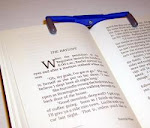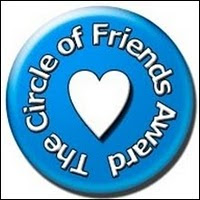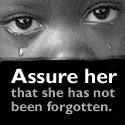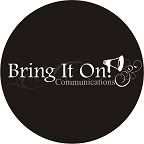I currently attend a church that is not very ethnically diverse (although we do a lot of outreach). I am drawn to books that explain how to reach out to people of other nationalities. The latest book on my reading list in that category is ‘Ethnic Blend: Mixing Diversity into Your Local Church ’ by Mark DeYmaz and Harry Li.
’ by Mark DeYmaz and Harry Li.
Here is the synopsis of this book :
:
Experience the 21st Century’s New Reformation. Increasingly, church leaders are recognizing the intrinsic power and beauty of the multi-ethnic church. More than a good idea, it’s a biblical, first-century standard with far-reaching evangelical potential.
How can your church overcome the obstacles in order to become a healthy, fruitful multi-ethnic church of faith? And why should you even try?
In Ethnic Blends , multi-ethnic church pioneers Mark DeYmaz and Harry Li provide an up-close and personal look at seven common challenges to mixing diversity into your local church. Through real-life stories and practical illustrations, DeYmaz and Li show how to overcome the obstacles in order to build a healthy multi-ethnic church. They also include the insights of other effective, multi-ethnic church pastors from the United States and Australia.
, multi-ethnic church pioneers Mark DeYmaz and Harry Li provide an up-close and personal look at seven common challenges to mixing diversity into your local church. Through real-life stories and practical illustrations, DeYmaz and Li show how to overcome the obstacles in order to build a healthy multi-ethnic church. They also include the insights of other effective, multi-ethnic church pastors from the United States and Australia.
Here are the biographies of these authors:
Dr. Mark DeYmaz is the founding pastor of the Mosaic Church of Central Arkansas, a multi-ethnic and economically diverse church where significant percentages of Black and White Americans, together with men and women from more than 30 nations, walk, work and worship God together as one. A recognized leader in the emerging Multi-ethnic Church Movement, Mark’s book, Building a Healthy Multi-ethnic Church (Jossey-Bass/Leadership Network, 2007), provides the biblical mandate for the multi-ethnic church and outlines seven core commitments required to bring it about. He posts weekly on his blog, Glue. Mark is currently a contributing editor for Leadership Journal and a former member of Little Rock’s Racial and Cultural Diversity Commission. He is a graduate of Liberty University, Western Seminary in Portland, OR, and has a DMin from Phoenix Seminary in Phoenix, AZ. In addition, he is a co-founder of the Mosaix Global Network based in Denton, Texas, an organization dedicated to inspiring unity and in the local church throughout North America and beyond. He lives in Little Rock, Arkansas with his wife, Linda, and their four children.
Harry Li is the Campus Pastor of Mosaic and came on staff in 2002, when the church was six months old. Prior to that, he was an Associate Professor of Electrical Engineering at the University of Idaho where he taught for 10 years. Harry and his wife, Melanie, reside in Little Rock and have three daughters, Anna, Katie and Meredith.
Here is the book trailer:
In the Foreword, Michael O. Emerson, PhD, a sociology professor at Rice University, explains why this book is needed:
is needed:
We need guidance on what challenges to expect, how to address them, how to worship and walk together, how to form community, and how to work for justice. Ethnic Blends brings us a giant leap forward on these questions. It provides firsthand accounts and draws on the best of a variety of experiences. The authors discuss a range of obstacles that those engaged in multi-ethnic ministry will inevitably face. Each chapter directly takes on real issues and provides honest, biblically and experientially informed responses. A treasure chest. (p. 16)
In the Introduction, entitled ‘Acquiring the Taste,’ Pastor DeYmaz opens this way, using a coffee analogy, which is a running theme throughout the book :
:
Together with my colleague of eight years, Harry Li, I have led our congregation in pursuit of what we sometimes refer to as ethnic blends – the intentional mixing of diversity into the local church. With a desire to inspire, guide, and encourage ministry leaders who long to see local churches reflect the unity and diversity of the kingdom of God on earth as it is in heaven, we are writing this book to promote the further development of multi-ethnic churches throughout North America and beyond. For we have seen that the multi-ethnic church, like a good cup of coffee, produces an aroma that is refreshingly attractive – especially to those without Christ in an increasingly diverse and cynical society (pp. 19-20)
Pastor Li describes their church and how he and Pastor DeYmaz want to reach many people:
Our church is truly a mosaic of broken individuals, yet united together, we form one beautiful picture in Christ. I’m so thankful that God has blessed our work in ways no person could even take credit for. Thankfully, his supernatural provisions and awesome displays of power remain as evident today as they were in the beginning, when I first arrived in Little Rock to help blaze a trail. Both Mark and I hope that after reading this book, you too will join us on this road less traveled. And we hope your own efforts, and contributions to the multi-ethnic church movement, will someday make the road even wider for the masses soon heading our way. (pp. 31-32)
Due to the increasing racial diversity of the United States, it is important that churches reflect that diversity as well:
Failure on our part to recognize the changing landscape or to adapt in accordance with Scripture may soon render our work, or worse yet our message, irrelevant. For in an increasingly diverse and cynical society, people will no longer find credible the message of God’s love for all people when it’s proclaimed from segregated churches. In these changing times, those without Christ will respond not to platitudes but rather to practice, not to words but only to an authentic witness of God’s love for all people that is daily displayed in life and action. And I believe that this witness is best matured and manifested through healthy multi-ethnic churches. (pp. 36-37)
Following Christ’s example will help us to love and reach those different from us:
When men and women of diverse backgrounds walk together as one in Christ in and through the local church, they reflect the Father’s love for all people. More than that, a oneness of mind, love, spirit, and purpose proclaims the gospel in a most powerful, tangible and compelling way. For as his own union with the Father uniquely empowered Christ to proclaim God’s love for the world, our union with him, and, he says, with fellow believers uniquely empowers us to do the same. Yes, in pursuing the “perfection of unity,” we will see the world come to know him as we do! (p. 41)
The gentlemen proclaim that there are seven core commitments of a multi-ethnic church (pp. 44-50):
1. Embrace Dependence
2. Take Intentional Steps
3. Empower Diverse Leaders
4. Develop Cross-cultural Relationships
5. Pursue Cross-cultural Competence
6. Promote a Spirit of Inclusion
7. Mobilize for Impact
There are many obstacles to having a multi-ethnic church, including personal differences among the difference cultures. However, they are worth the effort:
Given these personal challenges, why would anyone chase the multi-ethnic dream? There is really only one reason: if the kingdom of heaven is not segregated, the church on earth should not be either! That’s why, in these days of increasing diversity and opportunity, we believe that local church pastors, planters, and reformers must embrace the New Testament vision of the multi-ethnic church for the sake of the gospel. Without a solid grasp of God’s vision for the church, it will be difficult to face the personal challenges and opposition to your ministry. (pp. 67-68)
It is important to understand the group to whom you’re ministering:
Pastors and church planters must make it a priority to pursue cross-cultural competence if they hope to discover the nuances of each culture and their effect on the overall body of Christ. Ultimately, your effectiveness in ministering to a broad range of people within the church will hinge on your ability not only to understand but also to respect and rightly interpret for others various cultural perspectives related to Christ, the church, and the gospel. (p. 149)
The gentlemen point out that the apostle Paul often faced opposition, as described in the New Testament. Paul provides a role model for how to get along with others:
In circumstances like these, our natural tendency is to grow hard-hearted toward those who push back at us. Or we go to the opposite extreme and become a people pleaser to avoid conflict and win approval. Neither extreme is appropriate or Christlike. We must learn to remain tenderhearted and gracious, even when sharing hard truths with others. Paul modeled this sort of persistence and patience as he ministered in Athens, looking for others who were hungry to learn and responsive to the message (Acts 17:34) (p. 172)
In one of the section written by other pastors, David Anderson, Senior Pastor of Bridgeway Community Church in Columbia, Maryland, explains that the enemy of our souls seeks to bring forth discord in our churches:
Satan, the great deceiver and divider, works overtime to separate Christians, catch them while they are weak, worn, conflicted, confused, and, most of all, asleep. Just as Jesus’ friends dozed off when they were supposed to stay awake and pray for him while he was facing the most difficult spiritual and emotional battle of his life in the garden of Gethsemane, we as believers have been lulled to sleep while the enemy prowls around like a roaring lion. As brothers and sisters in Christ, we are called to watch each other’s backs at all times, but especially in prayer. When we are careful to cover each other and stay unified against our common enemy, we find less time to argue and divide over our differences regarding race, ethnicity, denominational preferences, and the like. (p. 201)
When difficulties come, the pastors offer this advice/wisdom:
Instead of allowing yourself to get discouraged, stay focused on God and allow his Spirit to fire you up time and time again. Remember that those who pursue the path of the peacemaker, investing their lives in multi-ethnic ministry, are following in the very footsteps of Christ and the apostle Paul, Take to heart the words of Paul as he reflected on his own work of planting and developing multi-ethnic churches. He wrote to Timothy, “You, however, know all about my teaching, my way of life, my purpose, faith, patience, love, endurance, persecutions, sufferings – what kinds of things happened in Antioch, Iconium, and Lystra, the persecutions I endured. Yet the Lord rescued me from all of them. In fact, everyone who wants to live a godly life in Christ Jesus will be persecuted” (2 Tim, 3:10-12). (pp. 209-210)
Our church is spearheading a movement called E.A.C.H. – Everyone A Chance to Hear (you can learn more about the initiative here). The idea is to give everyone in the Metro Detroit area – and beyond! – the opportunity to hear the gospel of Jesus Christ. Being that Metro Detroit is ethnically diverse, we all need to learn more about how to uniquely reach all people groups.
Although I am a lay Christian, I enjoy reading books which are written specifically to ‘professional Christians.’ Many people are under the mistaken impression that the pastorate and people employed by churches and parachurch ministries are the one who are supposed to do all the work. But Jesus told all of us to preach the gospel. It is exciting to learn more about how to be more effective in that endeavor. I thank Pastors DeYmaz and Li for bringing forth this information to help everyone be effective in reaching out to all people!
You can order this book here .
.
This book was provided by Zondervan Publishers for review purposes.






























.jpg)







3 comments:
Blessings and prayers,
andrea
Always enjoy reading your reviews, Andrea.
Thanks, ladies!
Post a Comment